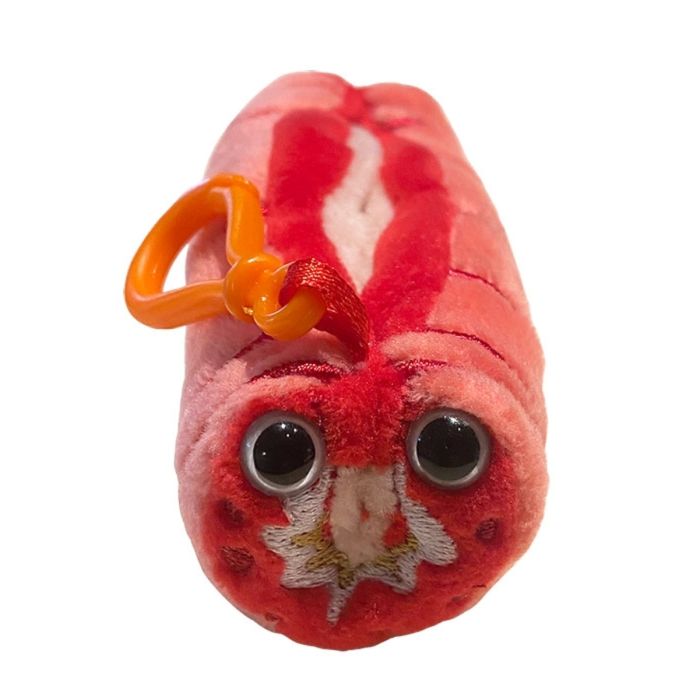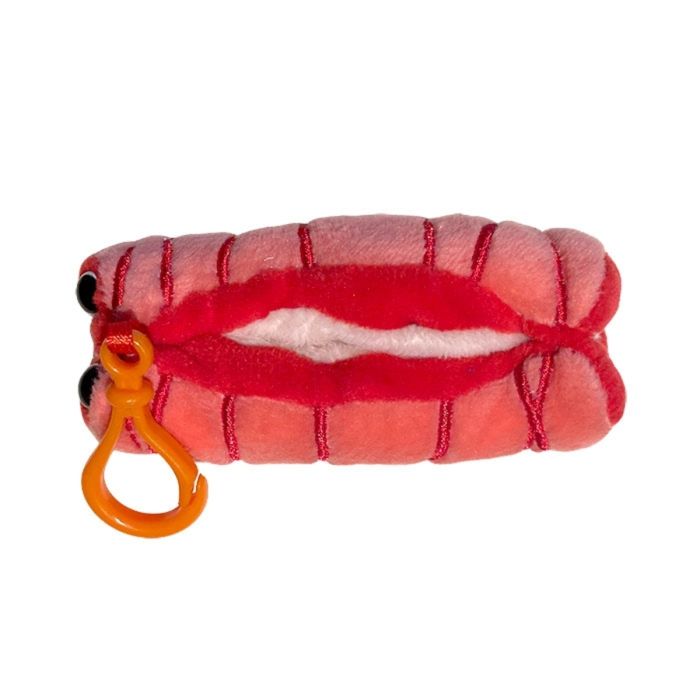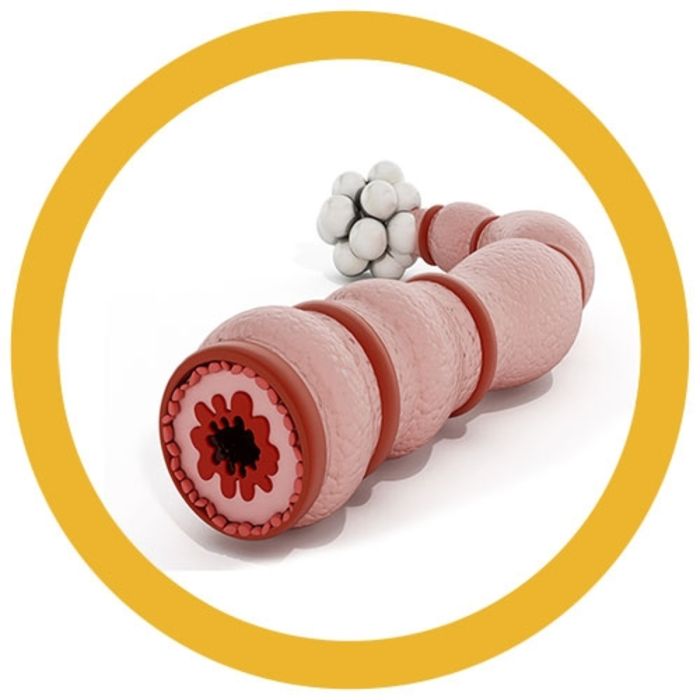Asthma Key Chain
Out of Stock
Asthma mini microbe (3.5") includes mini-tag and key chain clip.
Product Details
Additional Information
| Sizes | Giantmicrobes are based on actual microbes, cells, organisms and other critters, only 1,000,000 times actual size! Gigantic (GG) 16-24" XL (XL) 10-15" Original (PD) 5-8" Keychain (KC) 2-4" with clip |
|---|---|
| Materials | Plush from all new materials. Stuffed with polyester fiber fill. Surface washable: sponge with water & soap, air dry. |
| Packaging | Each plush microbe includes a printed card with fun, educational and fascinating facts about the actual microbe or cell. |
| Safety | Every product meets or exceeds U.S. and European standards for safety. For ages 3 and up. |
All about Asthma Key Chain
FACTS: Asthma is a chronic respiratory disease that affects people of all ages. It is the most common chronic disease among children. On the rise and often underdiagnosed, asthma afflicts over 200 million people globally. Asthma causes inflammation of the airways that carry oxygen in and out of the lungs. Airways become sensitive to allergens and other irritations, swelling and leading to asthma attacks. Symptoms include coughing, wheezing, chest tightening and shortness of breath. A severe attack may cause the airways to close so much that organs don’t get enough oxygen.
Different types of asthma are triggered by different factors. Allergic asthma is set off by pollen, mold, dust mites, animal dander or other allergens. Exercise-induced bronchoconstriction occurs when playing sports or exercising. Other types include adult-onset, occupational and non-allergic asthma. While there is no cure for asthma, symptoms can be controlled with medication and a management plan. Quick-relief medicines increase airflow and stop symptoms when they occur. Long-term controller medications are taken daily to prevent symptoms.
Asthma often starts during childhood. Those at highest risk are young kids who have respiratory infections, allergies, eczema or parents with asthma. Adults can develop asthma from contact with industrial chemicals or dusts. Scientists think there are both genetic and environmental factors involved in the onset of asthma, but the exact causes remain a mystery. The hygiene hypothesis is one fascinating area of research. The modern world’s emphasis on cleanliness and sanitation has reduced childhood infections, which is mostly a good thing. Yet this also means that kids have reduced environmental exposures, affecting the way their immune systems develop. This may lead to a disposition to develop allergies and a higher risk of asthma. Perhaps we should all spend more time playing in the dirt and interacting with microbes!









